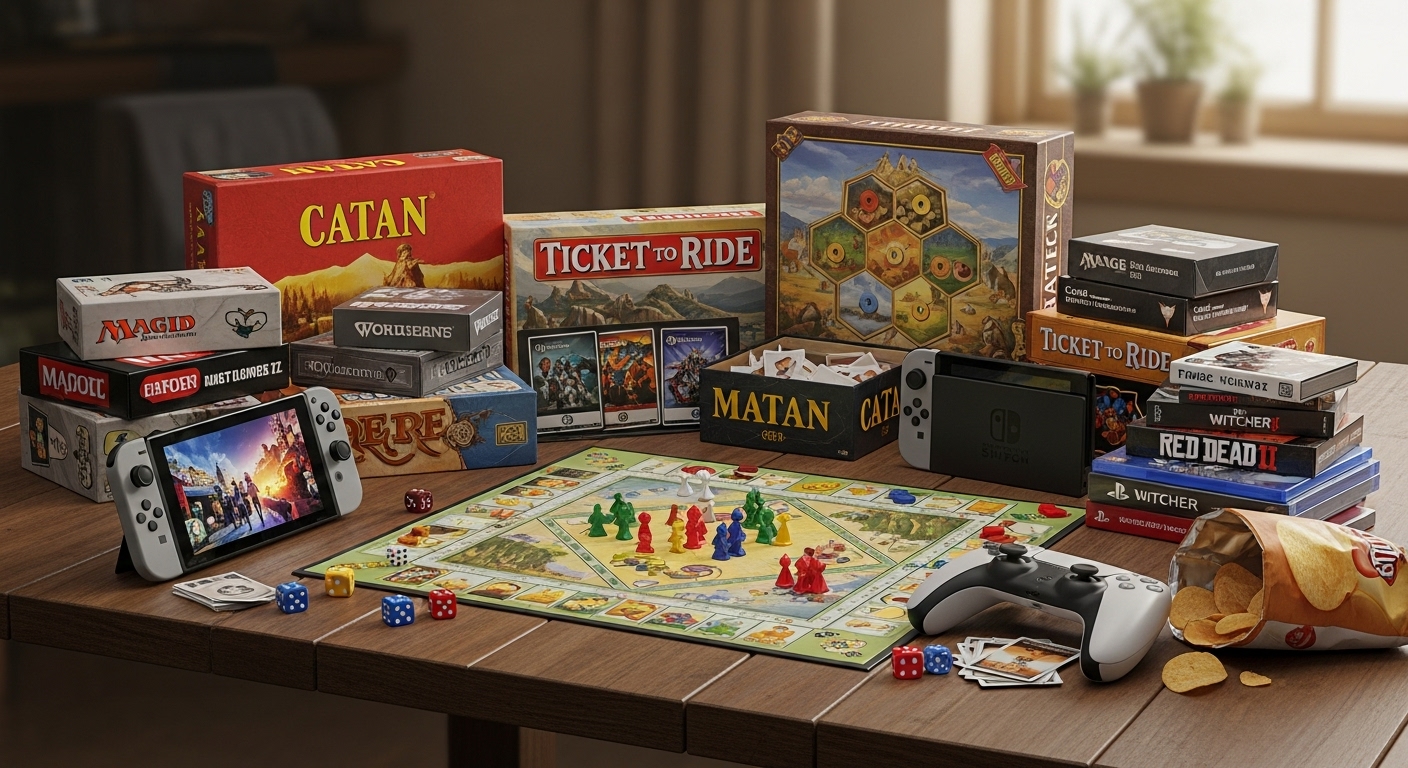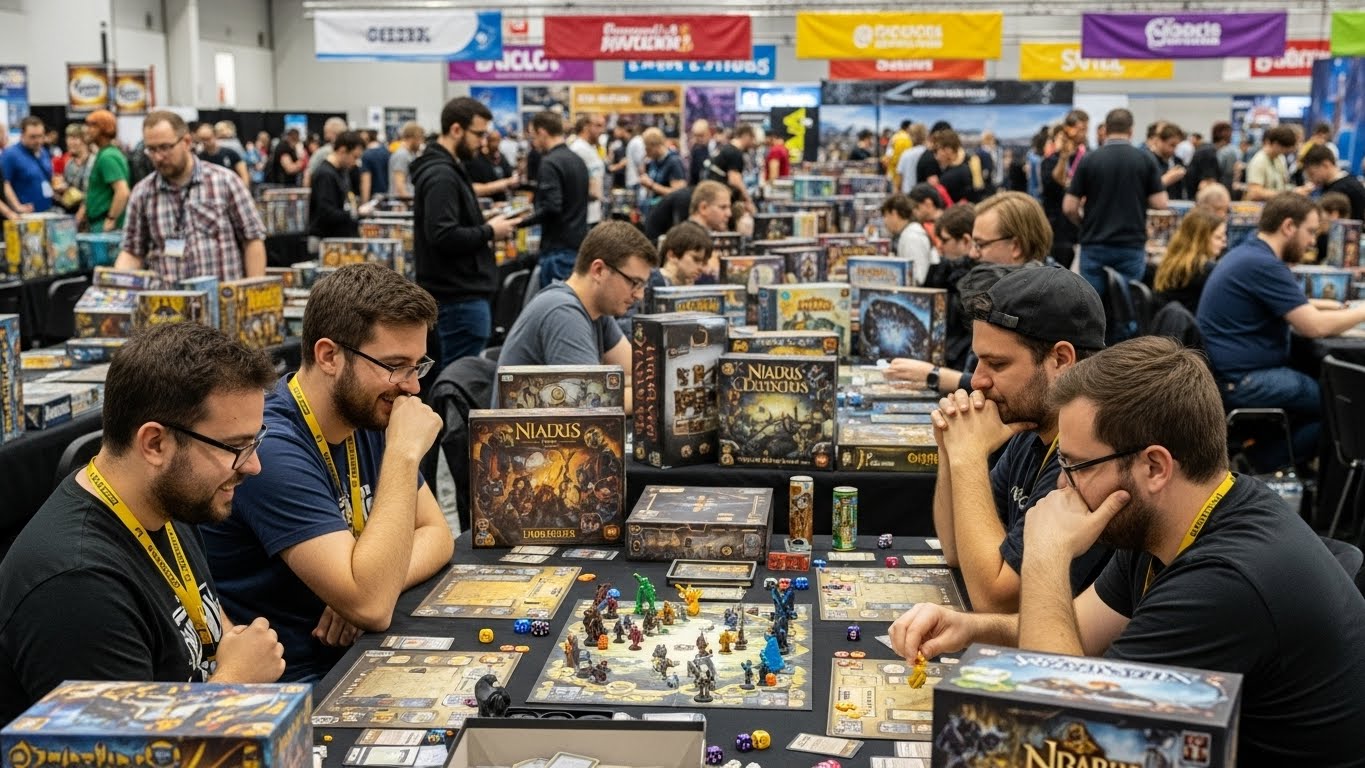Video games have long been regarded as a form of entertainment for the young and tech-savvy, but in recent years, gaming has evolved into one of the most powerful mediums of storytelling, creativity, and social interaction. What was once a hobby is now a multi-billion-dollar industry that spans every corner of the globe. From complex narratives to multiplayer worlds that connect people across continents, video games have transformed into a universal form of entertainment that continues to grow in both scope and impact. In this post, we will explore how games have evolved, what makes them so captivating, and where the world of gaming is heading next.
From Simple Pixels to Complex Universes
The early days of video games were marked by simple pixelated graphics and basic gameplay mechanics. Titles like Pong and Space Invaders captivated players with their addictive nature and straightforward objectives, yet these games were limited in terms of storytelling and immersive environments. However, as technology progressed, so did the ambitions of game developers.
The introduction of 3D graphics in the 1990s brought a whole new dimension to gaming, allowing players to experience worlds that felt more alive. Games like Super Mario 64 and The Legend of Zelda: Ocarina of Time showcased vast, open environments filled with complex puzzles, battles, and character interactions. These games were groundbreaking in their ability to blend exploration with interactive storytelling, providing players with a deeper sense of agency and emotional connection.
As the years went on, the complexity of games only increased. The arrival of massive open-world games like The Elder Scrolls V: Skyrim and Grand Theft Auto V allowed players to immerse themselves in expansive worlds where every corner held a new adventure. These titles helped define modern gaming, offering lifelike environments and multifaceted narratives that rivaled traditional forms of entertainment.
The Power of Storytelling in Video Games
One of the most significant shifts in the gaming industry has been the increasing importance of storytelling. Games are no longer just about high scores and defeating enemies; they are about crafting experiences that players can emotionally invest in. The success of narrative-driven games like The Last of Us, Red Dead Redemption 2, and The Witcher 3: Wild Hunt proves that video games can be as powerful as films or books when it comes to storytelling.
The beauty of video games lies in their interactivity. Unlike passive forms of entertainment, games allow players to shape the story with their actions and choices. In games like Mass Effect and Detroit: Become Human, players must make decisions that influence the outcome of the story, which adds a layer of depth and replayability. The emotional engagement players experience when making these choices creates a connection that is hard to replicate in other forms of media.
The narratives in these games tackle complex themes such as morality, loss, love, and survival, often leaving players with deep, thought-provoking experiences long after the credits roll. With stunning voice acting, cinematic cutscenes, and well-written scripts, modern games have elevated themselves into a medium that can stand shoulder to shoulder with the finest works of film and literature.
The Social and Competitive Side of Gaming
While single-player games have their own appeal, multiplayer gaming has become a global phenomenon. The rise of online games like Fortnite, League of Legends, and Counter-Strike: Global Offensive has turned gaming into a social activity that transcends geographic boundaries. Players can connect with friends and strangers from all over the world, competing or cooperating in real-time.
One of the biggest draws of online multiplayer games is the sense of community. Whether through team-based objectives, cooperative play, or large-scale competitive tournaments, multiplayer games foster a sense of belonging and teamwork. This social aspect has given birth to a new culture of gaming, where communities, fanbases, and online personalities thrive. Streaming platforms like Twitch and YouTube Gaming have further amplified this social connection, allowing viewers to watch their favorite gamers and interact with them directly.
Esports, or competitive video gaming, has also seen a meteoric rise. Professional gamers now compete in tournaments for massive prize pools, and the viewership of esports events has exploded. Games like Dota 2, Fortnite, and Overwatch have become central to this competitive scene, with millions tuning in to watch top-tier players battle it out in high-stakes matches. Esports has not only provided career opportunities for skilled gamers but has also created a new form of entertainment, with large audiences and global recognition.
The Mobile Revolution: Gaming Anywhere, Anytime
While console and PC gaming have been dominant for decades, the rise of mobile gaming has fundamentally changed the gaming landscape. With smartphones now in the hands of billions of people around the world, mobile games have become one of the most accessible forms of entertainment. Titles like Candy Crush, Clash of Clans, and Pokémon Go have made gaming more casual and convenient, allowing players to enjoy quick sessions during their daily routines.
Mobile games have evolved to offer experiences comparable to traditional gaming consoles, with rich graphics, multiplayer capabilities, and engaging gameplay mechanics. Games like Genshin Impact and PUBG Mobile offer expansive worlds and intense action, showing that mobile devices can deliver high-quality gaming experiences. Additionally, mobile games have democratized gaming by allowing people from all walks of life to participate without the need for expensive hardware.
One of the key features of mobile games is their accessibility. Whether you’re waiting for a bus, taking a break at work, or relaxing at home, mobile games provide a quick and easy way to dive into a game without the need for a console or PC. This accessibility has made mobile gaming one of the most popular forms of gaming worldwide, especially in regions where traditional gaming devices may not be as prevalent.
The Future of Gaming: Innovations on the Horizon
The future of gaming is brighter than ever, with advancements in technology set to redefine the way we play and experience games. Virtual reality (VR) and augmented reality (AR) are two key technologies that promise to take gaming to the next level. VR headsets like the Oculus Rift and PlayStation VR offer immersive experiences where players can physically interact with the game world, blurring the lines between the digital and physical realms. Meanwhile, AR games like Pokémon Go have shown the potential of blending real-world environments with digital elements, creating entirely new forms of gameplay.
Cloud gaming is another exciting frontier. With services like Google Stadia, Xbox Cloud Gaming, and NVIDIA GeForce Now, players can stream high-quality games directly to their devices without the need for powerful hardware. This could democratize access to gaming, allowing anyone with a good internet connection to play the latest AAA titles, regardless of their hardware specifications.
Artificial intelligence (AI) is also poised to revolutionize game design. AI can create dynamic, adaptive environments and characters that respond to a player’s choices, making each playthrough feel unique. This level of interactivity could lead to games that are more personalized and engaging than ever before, offering players experiences tailored to their preferences and playstyle.
Gaming’s Cultural Impact: More Than Just Entertainment
As gaming continues to grow in popularity, it is having a profound impact on culture, art, and society. Games have become a platform for self-expression, creativity, and social commentary. Titles like Celeste tackle important issues such as mental health, while games like The Last of Us Part II explore themes of revenge, empathy, and personal growth.
Gaming has also influenced other forms of entertainment. Video game adaptations in film and television are now commonplace, with franchises like The Witcher, Halo, and Uncharted making the jump to the small and big screen. This crossover between mediums highlights the storytelling potential of games and their ability to captivate audiences beyond the gaming community.
The sense of community within gaming is also growing. Online multiplayer games foster friendships and connections that extend beyond the virtual world. Gamers around the world can come together to share experiences, compete, and support each other. This global network of players creates a unique culture of camaraderie and shared passion that is one of the most defining features of the gaming world.
Conclusion: A World of Infinite Possibilities
The world of video games is no longer just a hobby for the few—it has become a global cultural force with infinite possibilities. From its humble beginnings as simple arcade games to its current status as a rich, immersive form of entertainment, gaming has undergone a remarkable transformation. Whether through compelling narratives, social interactions, or groundbreaking technologies, video games have become a central part of our digital lives. And as technology continues to evolve, the future of gaming holds even more exciting possibilities, from virtual worlds to new forms of storytelling. The magic of gaming lies in its ability to bring people together, challenge our perceptions, and transport us to new realities. The journey is just beginning.




